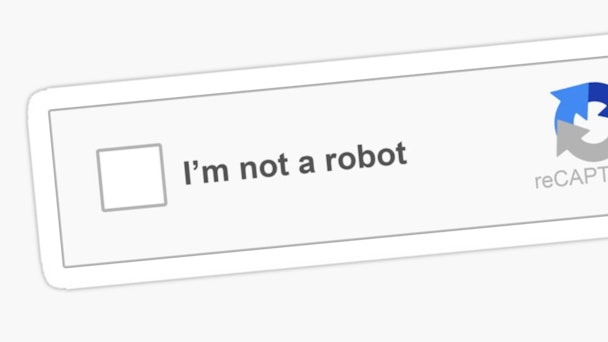The Drum’s Daily Briefing: Captchas get harder & Meta’s big AI bet spooks investors
Our quickfire analysis of the brand, marketing and media stories that might just crop up in your meetings and conversations today.

Bots now often outperform humans in solving Captchas
Captcha conundrum: when bots outdo humans
Captchas – those little puzzles you need to complete before you can proceed on a website – originated in the early 2000s, designed to differentiate humans from bots. However, as artificial intelligence and machine learning have evolved, so too have the complexities of Captchas. A recent study from the University of California, Irvine, shows that bots now often outperform humans in solving these puzzles, pushing developers to craft even trickier tests. Now, instead of deciphering twisted text, we’re tasked with identifying multiple images of traffic lights or counting fish skeletons in rotating pictures. As Captchas grow increasingly sophisticated, they prompt the question: Are we keeping bots out or just frustrating humans?
The secret animation outsourcing of North Korea
Deep within the secretive borders of North Korea, animators working under the regime’s watchful eye are contributing to global entertainment unnoticed. An accidental peek into their digital realm was provided thanks to a misconfigured cloud server discovered by cyber-detective Nick Roy and researcher Martyn Williams. For over a month, they observed real-time work on popular western animations for companies such as Amazon and HBO. Despite international sanctions, these North Korean studios are part of a larger, clandestine operation generating foreign currency for Kim Jong-un’s regime. The scale of North Korea’s quiet integration into the international digital outsourcing market reflects not just a crack in sanctions but a surprising globalization of animation labor.
UK regulators tighten the screws on AI mergers
The UK’s Competition & Markets Authority is setting its sights on the big tech firms’ forays into AI, sparking concerns over competition. With significant movements such as Microsoft’s hiring of Mustafa Suleyman from Inflection AI and partnerships between major tech companies and AI startups, the CMA is probing whether these constitute mergers that could stifle competition. The government, eager to position the UK as a leading AI hub, finds itself at odds with these regulatory moves. Critics warn this could deter investment in UK startups, potentially cooling the enthusiasm for a British Silicon Valley. It’s a delicate balance between fostering innovation and guarding against monopolistic tendencies in the burgeoning AI landscape.
Meta’s AI surge spooks investors
Meta Platforms is betting big on AI, anticipating a spike in expenses to support these ambitions. The tech giant, which controls platforms including Facebook and Instagram, predicts its total expenses to reach up to $99bn this year, with capital expenditures alone between $35bn and $40bn. This financial forecast has left investors jittery, leading to a significant drop in Meta’s stock price. Despite robust growth in user engagement and profits, the aggressive spending on new technologies, particularly the metaverse, raises questions about the long-term profitability and strategic focus of Meta in a rapidly evolving digital economy.
Plant-based pitfalls: the ultra-processed truth
A new study calls for clearer labeling of vegan alternative foods, highlighting that these options, while environmentally friendlier, are not always the healthier choice. Researchers argue that many plant-based substitutes are ultra-processed and packed with sugar and salt, potentially misleading consumers about their nutritional value. The analysis suggests that some products, like legume-based drinks and mycoprotein meats, could serve as beneficial transitions in our diet, but the vast differences among products need clearer demarcation. This call for transparency aims to inform consumers better and guide healthier dietary choices in the plant-based market.
Tesla’s political drive divides its market
Tesla’s image as a progressive, eco-friendly brand is taking hits from Elon Musk’s political antics. Recent data from Strategic Vision revealed a sharp decline in Democrat buyers, with a noticeable shift towards Republican and independent customers. This shift is attributed to Musk’s critical comments about Joe Biden and his increasing alignment with right-wing figures. Despite a dip in sales, Tesla saw a rebound in its stock after Musk committed to ramping up production of a new, more affordable electric vehicle. The fluctuating political landscape is proving to be a double-edged sword for Tesla, impacting its brand perception and consumer base in significant ways.
GB News faces Ofcom crackdown during elections
Ofcom is tightening its broadcast regulations ahead of the upcoming elections, particularly targeting channels like GB News that employ politicians as presenters. The broadcasting watchdog found GB News in violation during several programs, prompting a renewed focus on maintaining impartiality during sensitive political periods. The decision comes amid criticisms of Ofcom’s leniency and calls for the regulator to enforce its rules more stringently. As broadcasters navigate these heightened standards, political involvement in media remains a contentious issue, testing the boundaries of editorial independence and impartiality in broadcasting.
